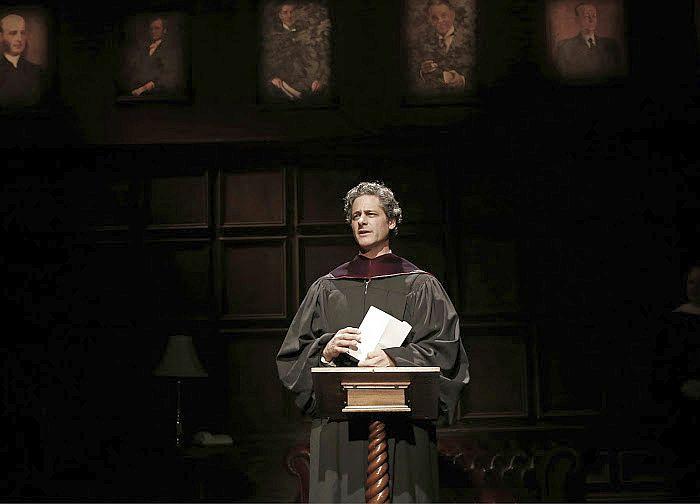“The Verdi Album” is German tenor Jonas Kaufmann’s debut recording on Sony Classical. The CD honors the composer on the 200th anniversary of his birth and is a worthy follow-up to Kaufmann’s outstanding Wagner album. Verdi and Wagner were both born in 1813.
Again, Kaufmann demonstrates his musicality, producing not only a magnificent sound but a range of vocal effects. These are not done simply to show off his voice but to effectuate the composer’s intentions, whether at the end of “Celeste Aida,” which most tenors simply belt out, despite the fact that the score is marked pianissimo and morendo (dying away), or the trills in “Ah! sì, ben mio,” which even Björling and Caruso skip.
His tone is thick, more baritonal than Domingo’s but with more facility in the upper register. His dramatic commitment is also evident, as he portrays a range of characters, often in extreme situations.
His liner notes convey his thoughtfulness and scholarship. During his notes on “Il Trovatore,” he even refers to the Marx Brothers’s “A Night at the Opera.”
Kaufmann has sung two of the Verdi roles and has plans to sing some of the others. The most exciting prospect is “Otello,” which he says he will perform in two or three years.
The two Otello arias in the collection are “Dio! mi potevi scagliar” (in which Otello declares that he can endure any dishonor except the unfaithfulness of his wife) and “Niun mi tema” (where Otello realizes that the wife he just murdered was innocent of infidelity and that he must commit suicide). He may be the first great Otello since Domingo.
The aria from “Rigoletto” presents just the opposite type of personality from Otello. The Duke of Mantua is a carefree seducer and sings “La donna è mobile” (claiming that it is women who are fickle rather than men like him). Kaufmann certainly looks the part of the ladykiller but his vocals lack charm.
“Di quella pira” from “Il Trovatore” is powerful, with the tenor nailing the high C at the end.
The duet from “Don Carlo” with baritone Franco Vassallo is stirring. In the liner notes, Kaufmann reveals that he toyed with the idea of singing both parts but rejected the idea as too “self-regarding.” Good taste won out.
Kaufmann reveals that he will probably not perform “Simon Boccanegra” on stage because the baritone and bass dominate the opera. Nevertheless, the aria he includes here, “O inferno!—Sento avvampar” is a standout, in which Gabriele Adorno moves from expressing hatred toward the title character to praying for the return of the woman he loves.
In the “Luisa Miller” aria, “Oh! fede negar potessi—Quando le sere al placido,” Rodolfo is dejected because he thinks he has been betrayed by Luisa but stops to recall their previous good times.
Whether the roles are ones he has performed on stage or has plans to do so or may never sing, on this album Kaufmann works hard to make the music and each character come alive.
The tenor is accompanied by Pier Giorgio Morandi and the Parma Opera Orchestra.
Kaufmann will be appearing at the Metropolitan Opera next February and March in Massenet’s “Werther.”
|Updated:


